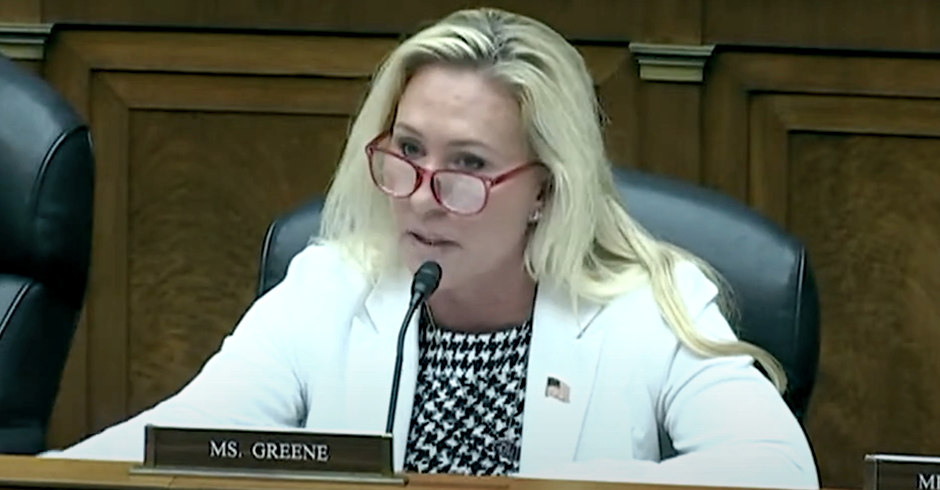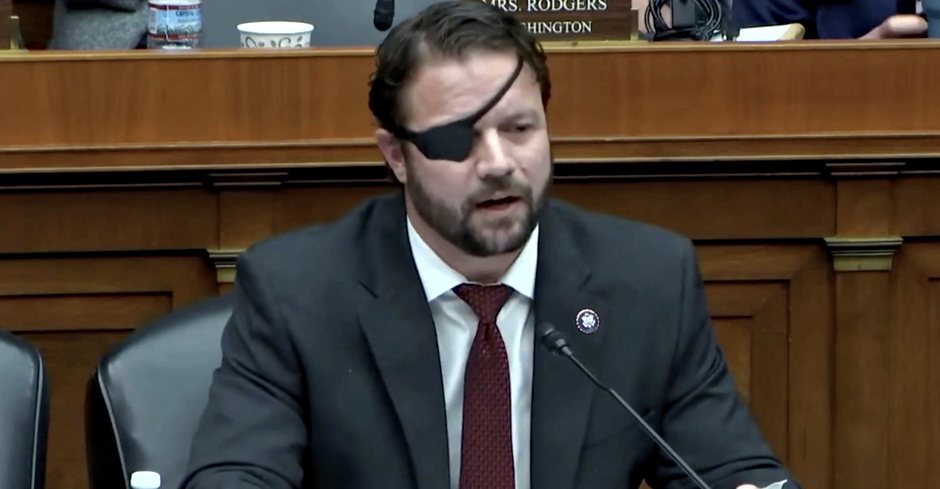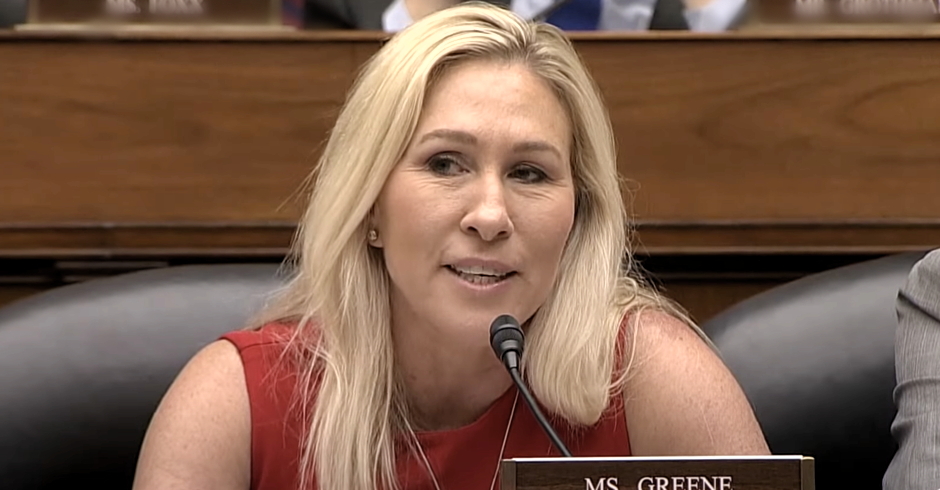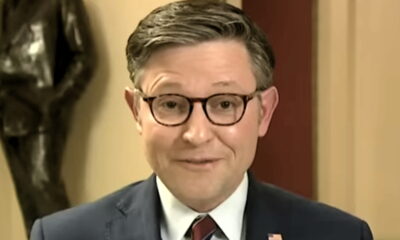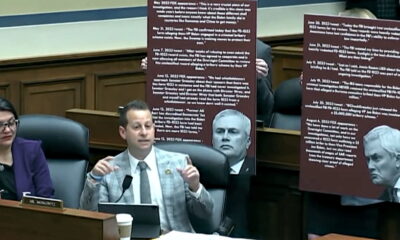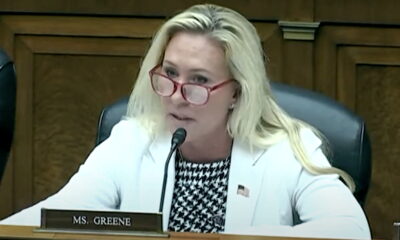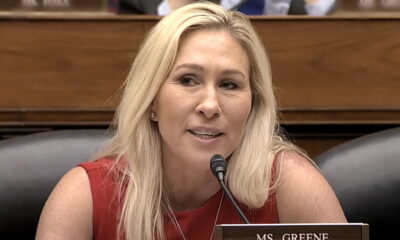Watch: Hillary Clinton’s Amazing Speech On LGBT Rights – Full Text And Video
Today, in Geneva, U.S. Secretary of State Hillary Clinton delivered an amazing, beautiful, wise, and some say, historic, speech on LGBT rights around the world, acknowledging “that my own country’s record on human rights for gay people is far from perfect.”
Highlighting the UN General Assembly’s 1948 Universal Declaration of Human Rights, Secretary Clinton said, “Some have suggested that gay rights and human rights are separate and distinct; but, in fact, they are one and the same.” Secretary Clinton also said that “it should never be a crime to be gay,” and, as she has said before, “gay rights are Human Rights and Human Rights are gay rights.â€
In an amazing rebuke to the religious right in America, and to some religious leaders around the world, Clinton said,
The third, and perhaps most challenging, issue arises when people cite religious or cultural values as a reason to violate or not to protect the human rights of LGBT citizens. This is not unlike the justification offered for violent practices towards women like honor killings, widow burning, or female genital mutilation. Some people still defend those practices as part of a cultural tradition. But violence toward women isn’t cultural; it’s criminal. Likewise with slavery, what was once justified as sanctioned by God is now properly reviled as an unconscionable violation of human rights.
Clinton also spoke today from Lithuania, decrying anti-gay hate crimes around the world.
Watch this amazing video, below.
http://c.brightcove.com/services/viewer/federated_f9?isVid=1
Full text:
Remarks in Recognition of International Human Rights Day
Remarks
Secretary of State
At three o’clock in the morning on December 10th, 1948, after nearly two years of drafting and one last long night of debate, the president of the UN General Assembly called for a vote on the final text. Forty-eight nations voted in favor; eight abstained; none dissented. And the Universal Declaration of Human Rights was adopted. It proclaims a simple, powerful idea: All human beings are born free and equal in dignity and rights. And with the declaration, it was made clear that rights are not conferred by government; they are the birthright of all people. It does not matter what country we live in, who our leaders are, or even who we are. Because we are human, we therefore have rights. And because we have rights, governments are bound to protect them.
In the 63 years since the declaration was adopted, many nations have made great progress in making human rights a human reality. Step by step, barriers that once prevented people from enjoying the full measure of liberty, the full experience of dignity, and the full benefits of humanity have fallen away. In many places, racist laws have been repealed, legal and social practices that relegated women to second-class status have been abolished, the ability of religious minorities to practice their faith freely has been secured.
In most cases, this progress was not easily won. People fought and organized and campaigned in public squares and private spaces to change not only laws, but hearts and minds. And thanks to that work of generations, for millions of individuals whose lives were once narrowed by injustice, they are now able to live more freely and to participate more fully in the political, economic, and social lives of their communities.
Now, there is still, as you all know, much more to be done to secure that commitment, that reality, and progress for all people. Today, I want to talk about the work we have left to do to protect one group of people whose human rights are still denied in too many parts of the world today. In many ways, they are an invisible minority. They are arrested, beaten, terrorized, even executed. Many are treated with contempt and violence by their fellow citizens while authorities empowered to protect them look the other way or, too often, even join in the abuse. They are denied opportunities to work and learn, driven from their homes and countries, and forced to suppress or deny who they are to protect themselves from harm.
I am talking about gay, lesbian, bisexual, and transgender people, human beings born free and given bestowed equality and dignity, who have a right to claim that, which is now one of the remaining human rights challenges of our time. I speak about this subject knowing that my own country’s record on human rights for gay people is far from perfect. Until 2003, it was still a crime in parts of our country. Many LGBT Americans have endured violence and harassment in their own lives, and for some, including many young people, bullying and exclusion are daily experiences. So we, like all nations, have more work to do to protect human rights at home.
Now, raising this issue, I know, is sensitive for many people and that the obstacles standing in the way of protecting the human rights of LGBT people rest on deeply held personal, political, cultural, and religious beliefs. So I come here before you with respect, understanding, and humility. Even though progress on this front is not easy, we cannot delay acting. So in that spirit, I want to talk about the difficult and important issues we must address together to reach a global consensus that recognizes the human rights of LGBT citizens everywhere.
The first issue goes to the heart of the matter. Some have suggested that gay rights and human rights are separate and distinct; but, in fact, they are one and the same. Now, of course, 60 years ago, the governments that drafted and passed the Universal Declaration of Human Rights were not thinking about how it applied to the LGBT community. They also weren’t thinking about how it applied to indigenous people or children or people with disabilities or other marginalized groups. Yet in the past 60 years, we have come to recognize that members of these groups are entitled to the full measure of dignity and rights, because, like all people, they share a common humanity.
This recognition did not occur all at once. It evolved over time. And as it did, we understood that we were honoring rights that people always had, rather than creating new or special rights for them. Like being a woman, like being a racial, religious, tribal, or ethnic minority, being LGBT does not make you less human. And that is why gay rights are human rights, and human rights are gay rights.
It is violation of human rights when people are beaten or killed because of their sexual orientation, or because they do not conform to cultural norms about how men and women should look or behave. It is a violation of human rights when governments declare it illegal to be gay, or allow those who harm gay people to go unpunished. It is a violation of human rights when lesbian or transgendered women are subjected to so-called corrective rape, or forcibly subjected to hormone treatments, or when people are murdered after public calls for violence toward gays, or when they are forced to flee their nations and seek asylum in other lands to save their lives. And it is a violation of human rights when life-saving care is withheld from people because they are gay, or equal access to justice is denied to people because they are gay, or public spaces are out of bounds to people because they are gay. No matter what we look like, where we come from, or who we are, we are all equally entitled to our human rights and dignity.
The second issue is a question of whether homosexuality arises from a particular part of the world. Some seem to believe it is a Western phenomenon, and therefore people outside the West have grounds to reject it. Well, in reality, gay people are born into and belong to every society in the world. They are all ages, all races, all faiths; they are doctors and teachers, farmers and bankers, soldiers and athletes; and whether we know it, or whether we acknowledge it, they are our family, our friends, and our neighbors.
Being gay is not a Western invention; it is a human reality. And protecting the human rights of all people, gay or straight, is not something that only Western governments do. South Africa’s constitution, written in the aftermath of Apartheid, protects the equality of all citizens, including gay people. In Colombia and Argentina, the rights of gays are also legally protected. In Nepal, the supreme court has ruled that equal rights apply to LGBT citizens. The Government of Mongolia has committed to pursue new legislation that will tackle anti-gay discrimination.
Now, some worry that protecting the human rights of the LGBT community is a luxury that only wealthy nations can afford. But in fact, in all countries, there are costs to not protecting these rights, in both gay and straight lives lost to disease and violence, and the silencing of voices and views that would strengthen communities, in ideas never pursued by entrepreneurs who happen to be gay. Costs are incurred whenever any group is treated as lesser or the other, whether they are women, racial, or religious minorities, or the LGBT. Former President Mogae of Botswana pointed out recently that for as long as LGBT people are kept in the shadows, there cannot be an effective public health program to tackle HIV and AIDS. Well, that holds true for other challenges as well.
The third, and perhaps most challenging, issue arises when people cite religious or cultural values as a reason to violate or not to protect the human rights of LGBT citizens. This is not unlike the justification offered for violent practices towards women like honor killings, widow burning, or female genital mutilation. Some people still defend those practices as part of a cultural tradition. But violence toward women isn’t cultural; it’s criminal. Likewise with slavery, what was once justified as sanctioned by God is now properly reviled as an unconscionable violation of human rights.
In each of these cases, we came to learn that no practice or tradition trumps the human rights that belong to all of us. And this holds true for inflicting violence on LGBT people, criminalizing their status or behavior, expelling them from their families and communities, or tacitly or explicitly accepting their killing.
Of course, it bears noting that rarely are cultural and religious traditions and teachings actually in conflict with the protection of human rights. Indeed, our religion and our culture are sources of compassion and inspiration toward our fellow human beings. It was not only those who’ve justified slavery who leaned on religion, it was also those who sought to abolish it. And let us keep in mind that our commitments to protect the freedom of religion and to defend the dignity of LGBT people emanate from a common source. For many of us, religious belief and practice is a vital source of meaning and identity, and fundamental to who we are as people. And likewise, for most of us, the bonds of love and family that we forge are also vital sources of meaning and identity. And caring for others is an expression of what it means to be fully human. It is because the human experience is universal that human rights are universal and cut across all religions and cultures.
The fourth issue is what history teaches us about how we make progress towards rights for all. Progress starts with honest discussion. Now, there are some who say and believe that all gay people are pedophiles, that homosexuality is a disease that can be caught or cured, or that gays recruit others to become gay. Well, these notions are simply not true. They are also unlikely to disappear if those who promote or accept them are dismissed out of hand rather than invited to share their fears and concerns. No one has ever abandoned a belief because he was forced to do so.
Universal human rights include freedom of expression and freedom of belief, even if our words or beliefs denigrate the humanity of others. Yet, while we are each free to believe whatever we choose, we cannot do whatever we choose, not in a world where we protect the human rights of all.
Reaching understanding of these issues takes more than speech. It does take a conversation. In fact, it takes a constellation of conversations in places big and small. And it takes a willingness to see stark differences in belief as a reason to begin the conversation, not to avoid it.
But progress comes from changes in laws. In many places, including my own country, legal protections have preceded, not followed, broader recognition of rights. Laws have a teaching effect. Laws that discriminate validate other kinds of discrimination. Laws that require equal protections reinforce the moral imperative of equality. And practically speaking, it is often the case that laws must change before fears about change dissipate.
Many in my country thought that President Truman was making a grave error when he ordered the racial desegregation of our military. They argued that it would undermine unit cohesion. And it wasn’t until he went ahead and did it that we saw how it strengthened our social fabric in ways even the supporters of the policy could not foresee. Likewise, some worried in my country that the repeal of “Don’t Ask, Don’t Tell†would have a negative effect on our armed forces. Now, the Marine Corps Commandant, who was one of the strongest voices against the repeal, says that his concerns were unfounded and that the Marines have embraced the change.
Finally, progress comes from being willing to walk a mile in someone else’s shoes. We need to ask ourselves, “How would it feel if it were a crime to love the person I love? How would it feel to be discriminated against for something about myself that I cannot change?” This challenge applies to all of us as we reflect upon deeply held beliefs, as we work to embrace tolerance and respect for the dignity of all persons, and as we engage humbly with those with whom we disagree in the hope of creating greater understanding.
A fifth and final question is how we do our part to bring the world to embrace human rights for all people including LGBT people. Yes, LGBT people must help lead this effort, as so many of you are. Their knowledge and experiences are invaluable and their courage inspirational. We know the names of brave LGBT activists who have literally given their lives for this cause, and there are many more whose names we will never know. But often those who are denied rights are least empowered to bring about the changes they seek. Acting alone, minorities can never achieve the majorities necessary for political change.
So when any part of humanity is sidelined, the rest of us cannot sit on the sidelines. Every time a barrier to progress has fallen, it has taken a cooperative effort from those on both sides of the barrier. In the fight for women’s rights, the support of men remains crucial. The fight for racial equality has relied on contributions from people of all races. Combating Islamaphobia or anti-Semitism is a task for people of all faiths. And the same is true with this struggle for equality.
Conversely, when we see denials and abuses of human rights and fail to act, that sends the message to those deniers and abusers that they won’t suffer any consequences for their actions, and so they carry on. But when we do act, we send a powerful moral message. Right here in Geneva, the international community acted this year to strengthen a global consensus around the human rights of LGBT people. At the Human Rights Council in March, 85 countries from all regions supported a statement calling for an end to criminalization and violence against people because of their sexual orientation and gender identity.
At the following session of the Council in June, South Africa took the lead on a resolution about violence against LGBT people. The delegation from South Africa spoke eloquently about their own experience and struggle for human equality and its indivisibility. When the measure passed, it became the first-ever UN resolution recognizing the human rights of gay people worldwide. In the Organization of American States this year, the Inter-American Commission on Human Rights created a unit on the rights of LGBT people, a step toward what we hope will be the creation of a special rapporteur.
Now, we must go further and work here and in every region of the world to galvanize more support for the human rights of the LGBT community. To the leaders of those countries where people are jailed, beaten, or executed for being gay, I ask you to consider this: Leadership, by definition, means being out in front of your people when it is called for. It means standing up for the dignity of all your citizens and persuading your people to do the same. It also means ensuring that all citizens are treated as equals under your laws, because let me be clear – I am not saying that gay people can’t or don’t commit crimes. They can and they do, just like straight people. And when they do, they should be held accountable, but it should never be a crime to be gay.
And to people of all nations, I say supporting human rights is your responsibility too. The lives of gay people are shaped not only by laws, but by the treatment they receive every day from their families, from their neighbors. Eleanor Roosevelt, who did so much to advance human rights worldwide, said that these rights begin in the small places close to home – the streets where people live, the schools they attend, the factories, farms, and offices where they work. These places are your domain. The actions you take, the ideals that you advocate, can determine whether human rights flourish where you are.
And finally, to LGBT men and women worldwide, let me say this: Wherever you live and whatever the circumstances of your life, whether you are connected to a network of support or feel isolated and vulnerable, please know that you are not alone. People around the globe are working hard to support you and to bring an end to the injustices and dangers you face. That is certainly true for my country. And you have an ally in the United States of America and you have millions of friends among the American people.
The Obama Administration defends the human rights of LGBT people as part of our comprehensive human rights policy and as a priority of our foreign policy. In our embassies, our diplomats are raising concerns about specific cases and laws, and working with a range of partners to strengthen human rights protections for all. In Washington, we have created a task force at the State Department to support and coordinate this work. And in the coming months, we will provide every embassy with a toolkit to help improve their efforts. And we have created a program that offers emergency support to defenders of human rights for LGBT people.
This morning, back in Washington, President Obama put into place the first U.S. Government strategy dedicated to combating human rights abuses against LGBT persons abroad. Building on efforts already underway at the State Department and across the government, the President has directed all U.S. Government agencies engaged overseas to combat the criminalization of LGBT status and conduct, to enhance efforts to protect vulnerable LGBT refugees and asylum seekers, to ensure that our foreign assistance promotes the protection of LGBT rights, to enlist international organizations in the fight against discrimination, and to respond swiftly to abuses against LGBT persons.
I am also pleased to announce that we are launching a new Global Equality Fund that will support the work of civil society organizations working on these issues around the world. This fund will help them record facts so they can target their advocacy, learn how to use the law as a tool, manage their budgets, train their staffs, and forge partnerships with women’s organizations and other human rights groups. We have committed more than $3 million to start this fund, and we have hope that others will join us in supporting it.
The women and men who advocate for human rights for the LGBT community in hostile places, some of whom are here today with us, are brave and dedicated, and deserve all the help we can give them. We know the road ahead will not be easy. A great deal of work lies before us. But many of us have seen firsthand how quickly change can come. In our lifetimes, attitudes toward gay people in many places have been transformed. Many people, including myself, have experienced a deepening of our own convictions on this topic over the years, as we have devoted more thought to it, engaged in dialogues and debates, and established personal and professional relationships with people who are gay.
This evolution is evident in many places. To highlight one example, the Delhi High Court decriminalized homosexuality in India two years ago, writing, and I quote, “If there is one tenet that can be said to be an underlying theme of the Indian constitution, it is inclusiveness.†There is little doubt in my mind that support for LGBT human rights will continue to climb. Because for many young people, this is simple: All people deserve to be treated with dignity and have their human rights respected, no matter who they are or whom they love.
There is a phrase that people in the United States invoke when urging others to support human rights: “Be on the right side of history.†The story of the United States is the story of a nation that has repeatedly grappled with intolerance and inequality. We fought a brutal civil war over slavery. People from coast to coast joined in campaigns to recognize the rights of women, indigenous peoples, racial minorities, children, people with disabilities, immigrants, workers, and on and on. And the march toward equality and justice has continued. Those who advocate for expanding the circle of human rights were and are on the right side of history, and history honors them. Those who tried to constrict human rights were wrong, and history reflects that as well.
I know that the thoughts I’ve shared today involve questions on which opinions are still evolving. As it has happened so many times before, opinion will converge once again with the truth, the immutable truth, that all persons are created free and equal in dignity and rights. We are called once more to make real the words of the Universal Declaration. Let us answer that call. Let us be on the right side of history, for our people, our nations, and future generations, whose lives will be shaped by the work we do today. I come before you with great hope and confidence that no matter how long the road ahead, we will travel it successfully together. Thank you very much. (Applause.)

Enjoy this piece?
… then let us make a small request. The New Civil Rights Movement depends on readers like you to meet our ongoing expenses and continue producing quality progressive journalism. Three Silicon Valley giants consume 70 percent of all online advertising dollars, so we need your help to continue doing what we do.
NCRM is independent. You won’t find mainstream media bias here. From unflinching coverage of religious extremism, to spotlighting efforts to roll back our rights, NCRM continues to speak truth to power. America needs independent voices like NCRM to be sure no one is forgotten.
Every reader contribution, whatever the amount, makes a tremendous difference. Help ensure NCRM remains independent long into the future. Support progressive journalism with a one-time contribution to NCRM, or click here to become a subscriber. Thank you. Click here to donate by check.
 |
